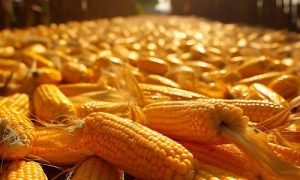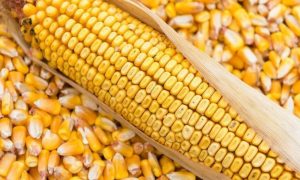Zambia minister: We have no maize to export to Kenya

Zambia will not be exporting maize to Kenya this season because it has a deficit in the grain, its Finance Minister, Dr Situmbeko Musokotwane, has said.
In an interview with The East African on the side-lines of the World Bank and International Monetary Fund Spring Meetings in Washington DC, Dr Musokotwane said Zambia will instead be importing maize to supplement the shortfalls occasioned by a poor harvest last season.
Kenya’s Agriculture Cabinet Secretary Mithika Linturi has said Kenya is contracting Zambian farmers to grow maize exclusively for the Kenyan market as the government seeks to lower the cost of the staple, with the first consignment under the agreement expected in August.
“I think we all know that there has been a shortage of maize, especially in border areas near Tanzania, Congo and Malawi. In the most immediate response, the government decided that we allow importation to supplement whatever we have so that shortages can be alleviated,” said Dr Musokotwane.
Removed taxes
“So, to facilitate that, (Zambia’s) Treasury has removed taxes and other fees payable on maize imports so that we contribute towards moderating the cost of this commodity. The taxes have been removed, the private sector is free to import from either South Africa or from anywhere so that the shortages can be alleviated.”
According to Integrated Food Security Phase Classification July 2022-March 2023 report, in terms of production of agricultural commodities, maize production in Zambia for the 2022/2023 consumption decreased from 3,620,244 metric tonnes to 2,706,243 metric tonnes, representing a 25 percent decrease in production, hence occasioning the decision to import the grain.
Dr Musokotwane was non-committal on the plan announced by CS Linturi to plant maize in Zambia for the Kenyan market and said he was yet to be fully briefed by his Agriculture colleague Mtolo Phiri.
“That is a bit of information that the Minister for Agriculture in Zambia can handle,” Dr Musokotwane said.
Land for growing maize
Zambia is unable to meet Kenya’s immediate grain requirements but offered between 20,000 hectares to 40,000 hectares for growing the crop for the Kenyan market.
Mr Linturi and Mr Phiri signed a memorandum in March to allow large-scale farming of maize in Zambia for export to Nairobi.
“Kenya will be signing a contract with local farmers in Zambia in the next one month that will see them grow maize for export to the Kenyan market,” said Mr Linturi.
But the announcement that the Zambia maize is expected in August did not go down well with the Kenya Farmers Association, who argue that the timing is wrong.
“If he says that he will be importing maize in August, that will be harvesting time in most parts of Western and Rift Valley, and even in Uganda and Tanzania,” said the association’s director Kipkorir Menjo.
‘Timing is not right’
“I don’t think that was a well-thought-out plan. The timing is not right, as it will affect prices and maize production from the North Rift.”
He said the government should provide farm inputs during the planting season to enable farmers produce enough maize for the country instead of seeking imports every time there is a shortage, perceived or real.
The cost of maize flour has gone up, with a two-kilo packet now retailing at more than Ksh200 ($1.50), from Ksh186 ($1.40) last month, in line with the rising cost of the cereal that has seen a 90-kilo bag hit Ksh6,100 ($45.50) from Ksh5,300 ($39.55).
Last week, Kenya’s Agriculture Principal Secretary Harsama Kello, who had accompanied Linturi to Zambia, said Kenya was looking to import one million tonnes of maize to meet its national deficit after traditional maize exporters from Uganda and Tanzania cited reduced production last season.
“South Africa is the only country with maize stocks in Africa and many countries are now scrambling for the commodity. We are likely to have a challenge with maize arriving in time due to availability in the market,” said Harsama.
















